Residential
Commercial
Industrial
Retail
Mixed-Use
Property Leasing
Property Maintenance
Facility Management
Real Estate Management
Tenant Management
Institutional Investors
Individual Investors
Real Estate Developers
Property Owners
Cloud-Based
On-Premises
North America
Europe
South America
Asia Pacific
Middle East and Africa
North America Outlook (USD Billion, 2019-2035)
North America Property Management Market by Property Type
Residential
Commercial
Industrial
Retail
Mixed-Use
North America Property Management Market by Service Type
Property Leasing
Property Maintenance
Facility Management
Real Estate Management
Tenant Management
North America Property Management Market by End User Type
Institutional Investors
Individual Investors
Real Estate Developers
Property Owners
North America Property Management Market by Deployment Type
Cloud-Based
On-Premises
North America Property Management Market by Regional Type
US
Canada
US Outlook (USD Billion, 2019-2035)
US Property Management Market by Property Type
Residential
Commercial
Industrial
Retail
Mixed-Use
US Property Management Market by Service Type
Property Leasing
Property Maintenance
Facility Management
Real Estate Management
Tenant Management
US Property Management Market by End User Type
Institutional Investors
Individual Investors
Real Estate Developers
Property Owners
US Property Management Market by Deployment Type
Cloud-Based
On-Premises
CANADA Outlook (USD Billion, 2019-2035)
CANADA Property Management Market by Property Type
Residential
Commercial
Industrial
Retail
Mixed-Use
CANADA Property Management Market by Service Type
Property Leasing
Property Maintenance
Facility Management
Real Estate Management
Tenant Management
CANADA Property Management Market by End User Type
Institutional Investors
Individual Investors
Real Estate Developers
Property Owners
CANADA Property Management Market by Deployment Type
Cloud-Based
On-Premises
Europe Outlook (USD Billion, 2019-2035)
Europe Property Management Market by Property Type
Residential
Commercial
Industrial
Retail
Mixed-Use
Europe Property Management Market by Service Type
Property Leasing
Property Maintenance
Facility Management
Real Estate Management
Tenant Management
Europe Property Management Market by End User Type
Institutional Investors
Individual Investors
Real Estate Developers
Property Owners
Europe Property Management Market by Deployment Type
Cloud-Based
On-Premises
Europe Property Management Market by Regional Type
Germany
UK
France
Russia
Italy
Spain
Rest of Europe
GERMANY Outlook (USD Billion, 2019-2035)
GERMANY Property Management Market by Property Type
Residential
Commercial
Industrial
Retail
Mixed-Use
GERMANY Property Management Market by Service Type
Property Leasing
Property Maintenance
Facility Management
Real Estate Management
Tenant Management
GERMANY Property Management Market by End User Type
Institutional Investors
Individual Investors
Real Estate Developers
Property Owners
GERMANY Property Management Market by Deployment Type
Cloud-Based
On-Premises
UK Outlook (USD Billion, 2019-2035)
UK Property Management Market by Property Type
Residential
Commercial
Industrial
Retail
Mixed-Use
UK Property Management Market by Service Type
Property Leasing
Property Maintenance
Facility Management
Real Estate Management
Tenant Management
UK Property Management Market by End User Type
Institutional Investors
Individual Investors
Real Estate Developers
Property Owners
UK Property Management Market by Deployment Type
Cloud-Based
On-Premises
FRANCE Outlook (USD Billion, 2019-2035)
FRANCE Property Management Market by Property Type
Residential
Commercial
Industrial
Retail
Mixed-Use
FRANCE Property Management Market by Service Type
Property Leasing
Property Maintenance
Facility Management
Real Estate Management
Tenant Management
FRANCE Property Management Market by End User Type
Institutional Investors
Individual Investors
Real Estate Developers
Property Owners
FRANCE Property Management Market by Deployment Type
Cloud-Based
On-Premises
RUSSIA Outlook (USD Billion, 2019-2035)
RUSSIA Property Management Market by Property Type
Residential
Commercial
Industrial
Retail
Mixed-Use
RUSSIA Property Management Market by Service Type
Property Leasing
Property Maintenance
Facility Management
Real Estate Management
Tenant Management
RUSSIA Property Management Market by End User Type
Institutional Investors
Individual Investors
Real Estate Developers
Property Owners
RUSSIA Property Management Market by Deployment Type
Cloud-Based
On-Premises
ITALY Outlook (USD Billion, 2019-2035)
ITALY Property Management Market by Property Type
Residential
Commercial
Industrial
Retail
Mixed-Use
ITALY Property Management Market by Service Type
Property Leasing
Property Maintenance
Facility Management
Real Estate Management
Tenant Management
ITALY Property Management Market by End User Type
Institutional Investors
Individual Investors
Real Estate Developers
Property Owners
ITALY Property Management Market by Deployment Type
Cloud-Based
On-Premises
SPAIN Outlook (USD Billion, 2019-2035)
SPAIN Property Management Market by Property Type
Residential
Commercial
Industrial
Retail
Mixed-Use
SPAIN Property Management Market by Service Type
Property Leasing
Property Maintenance
Facility Management
Real Estate Management
Tenant Management
SPAIN Property Management Market by End User Type
Institutional Investors
Individual Investors
Real Estate Developers
Property Owners
SPAIN Property Management Market by Deployment Type
Cloud-Based
On-Premises
REST OF EUROPE Outlook (USD Billion, 2019-2035)
REST OF EUROPE Property Management Market by Property Type
Residential
Commercial
Industrial
Retail
Mixed-Use
REST OF EUROPE Property Management Market by Service Type
Property Leasing
Property Maintenance
Facility Management
Real Estate Management
Tenant Management
REST OF EUROPE Property Management Market by End User Type
Institutional Investors
Individual Investors
Real Estate Developers
Property Owners
REST OF EUROPE Property Management Market by Deployment Type
Cloud-Based
On-Premises
APAC Outlook (USD Billion, 2019-2035)
APAC Property Management Market by Property Type
Residential
Commercial
Industrial
Retail
Mixed-Use
APAC Property Management Market by Service Type
Property Leasing
Property Maintenance
Facility Management
Real Estate Management
Tenant Management
APAC Property Management Market by End User Type
Institutional Investors
Individual Investors
Real Estate Developers
Property Owners
APAC Property Management Market by Deployment Type
Cloud-Based
On-Premises
APAC Property Management Market by Regional Type
China
India
Japan
South Korea
Malaysia
Thailand
Indonesia
Rest of APAC
CHINA Outlook (USD Billion, 2019-2035)
CHINA Property Management Market by Property Type
Residential
Commercial
Industrial
Retail
Mixed-Use
CHINA Property Management Market by Service Type
Property Leasing
Property Maintenance
Facility Management
Real Estate Management
Tenant Management
CHINA Property Management Market by End User Type
Institutional Investors
Individual Investors
Real Estate Developers
Property Owners
CHINA Property Management Market by Deployment Type
Cloud-Based
On-Premises
INDIA Outlook (USD Billion, 2019-2035)
INDIA Property Management Market by Property Type
Residential
Commercial
Industrial
Retail
Mixed-Use
INDIA Property Management Market by Service Type
Property Leasing
Property Maintenance
Facility Management
Real Estate Management
Tenant Management
INDIA Property Management Market by End User Type
Institutional Investors
Individual Investors
Real Estate Developers
Property Owners
INDIA Property Management Market by Deployment Type
Cloud-Based
On-Premises
JAPAN Outlook (USD Billion, 2019-2035)
JAPAN Property Management Market by Property Type
Residential
Commercial
Industrial
Retail
Mixed-Use
JAPAN Property Management Market by Service Type
Property Leasing
Property Maintenance
Facility Management
Real Estate Management
Tenant Management
JAPAN Property Management Market by End User Type
Institutional Investors
Individual Investors
Real Estate Developers
Property Owners
JAPAN Property Management Market by Deployment Type
Cloud-Based
On-Premises
SOUTH KOREA Outlook (USD Billion, 2019-2035)
SOUTH KOREA Property Management Market by Property Type
Residential
Commercial
Industrial
Retail
Mixed-Use
SOUTH KOREA Property Management Market by Service Type
Property Leasing
Property Maintenance
Facility Management
Real Estate Management
Tenant Management
SOUTH KOREA Property Management Market by End User Type
Institutional Investors
Individual Investors
Real Estate Developers
Property Owners
SOUTH KOREA Property Management Market by Deployment Type
Cloud-Based
On-Premises
MALAYSIA Outlook (USD Billion, 2019-2035)
MALAYSIA Property Management Market by Property Type
Residential
Commercial
Industrial
Retail
Mixed-Use
MALAYSIA Property Management Market by Service Type
Property Leasing
Property Maintenance
Facility Management
Real Estate Management
Tenant Management
MALAYSIA Property Management Market by End User Type
Institutional Investors
Individual Investors
Real Estate Developers
Property Owners
MALAYSIA Property Management Market by Deployment Type
Cloud-Based
On-Premises
THAILAND Outlook (USD Billion, 2019-2035)
THAILAND Property Management Market by Property Type
Residential
Commercial
Industrial
Retail
Mixed-Use
THAILAND Property Management Market by Service Type
Property Leasing
Property Maintenance
Facility Management
Real Estate Management
Tenant Management
THAILAND Property Management Market by End User Type
Institutional Investors
Individual Investors
Real Estate Developers
Property Owners
THAILAND Property Management Market by Deployment Type
Cloud-Based
On-Premises
INDONESIA Outlook (USD Billion, 2019-2035)
INDONESIA Property Management Market by Property Type
Residential
Commercial
Industrial
Retail
Mixed-Use
INDONESIA Property Management Market by Service Type
Property Leasing
Property Maintenance
Facility Management
Real Estate Management
Tenant Management
INDONESIA Property Management Market by End User Type
Institutional Investors
Individual Investors
Real Estate Developers
Property Owners
INDONESIA Property Management Market by Deployment Type
Cloud-Based
On-Premises
REST OF APAC Outlook (USD Billion, 2019-2035)
REST OF APAC Property Management Market by Property Type
Residential
Commercial
Industrial
Retail
Mixed-Use
REST OF APAC Property Management Market by Service Type
Property Leasing
Property Maintenance
Facility Management
Real Estate Management
Tenant Management
REST OF APAC Property Management Market by End User Type
Institutional Investors
Individual Investors
Real Estate Developers
Property Owners
REST OF APAC Property Management Market by Deployment Type
Cloud-Based
On-Premises
South America Outlook (USD Billion, 2019-2035)
South America Property Management Market by Property Type
Residential
Commercial
Industrial
Retail
Mixed-Use
South America Property Management Market by Service Type
Property Leasing
Property Maintenance
Facility Management
Real Estate Management
Tenant Management
South America Property Management Market by End User Type
Institutional Investors
Individual Investors
Real Estate Developers
Property Owners
South America Property Management Market by Deployment Type
Cloud-Based
On-Premises
South America Property Management Market by Regional Type
Brazil
Mexico
Argentina
Rest of South America
BRAZIL Outlook (USD Billion, 2019-2035)
BRAZIL Property Management Market by Property Type
Residential
Commercial
Industrial
Retail
Mixed-Use
BRAZIL Property Management Market by Service Type
Property Leasing
Property Maintenance
Facility Management
Real Estate Management
Tenant Management
BRAZIL Property Management Market by End User Type
Institutional Investors
Individual Investors
Real Estate Developers
Property Owners
BRAZIL Property Management Market by Deployment Type
Cloud-Based
On-Premises
MEXICO Outlook (USD Billion, 2019-2035)
MEXICO Property Management Market by Property Type
Residential
Commercial
Industrial
Retail
Mixed-Use
MEXICO Property Management Market by Service Type
Property Leasing
Property Maintenance
Facility Management
Real Estate Management
Tenant Management
MEXICO Property Management Market by End User Type
Institutional Investors
Individual Investors
Real Estate Developers
Property Owners
MEXICO Property Management Market by Deployment Type
Cloud-Based
On-Premises
ARGENTINA Outlook (USD Billion, 2019-2035)
ARGENTINA Property Management Market by Property Type
Residential
Commercial
Industrial
Retail
Mixed-Use
ARGENTINA Property Management Market by Service Type
Property Leasing
Property Maintenance
Facility Management
Real Estate Management
Tenant Management
ARGENTINA Property Management Market by End User Type
Institutional Investors
Individual Investors
Real Estate Developers
Property Owners
ARGENTINA Property Management Market by Deployment Type
Cloud-Based
On-Premises
REST OF SOUTH AMERICA Outlook (USD Billion, 2019-2035)
REST OF SOUTH AMERICA Property Management Market by Property Type
Residential
Commercial
Industrial
Retail
Mixed-Use
REST OF SOUTH AMERICA Property Management Market by Service Type
Property Leasing
Property Maintenance
Facility Management
Real Estate Management
Tenant Management
REST OF SOUTH AMERICA Property Management Market by End User Type
Institutional Investors
Individual Investors
Real Estate Developers
Property Owners
REST OF SOUTH AMERICA Property Management Market by Deployment Type
Cloud-Based
On-Premises
MEA Outlook (USD Billion, 2019-2035)
MEA Property Management Market by Property Type
Residential
Commercial
Industrial
Retail
Mixed-Use
MEA Property Management Market by Service Type
Property Leasing
Property Maintenance
Facility Management
Real Estate Management
Tenant Management
MEA Property Management Market by End User Type
Institutional Investors
Individual Investors
Real Estate Developers
Property Owners
MEA Property Management Market by Deployment Type
Cloud-Based
On-Premises
MEA Property Management Market by Regional Type
GCC Countries
South Africa
Rest of MEA
GCC COUNTRIES Outlook (USD Billion, 2019-2035)
GCC COUNTRIES Property Management Market by Property Type
Residential
Commercial
Industrial
Retail
Mixed-Use
GCC COUNTRIES Property Management Market by Service Type
Property Leasing
Property Maintenance
Facility Management
Real Estate Management
Tenant Management
GCC COUNTRIES Property Management Market by End User Type
Institutional Investors
Individual Investors
Real Estate Developers
Property Owners
GCC COUNTRIES Property Management Market by Deployment Type
Cloud-Based
On-Premises
SOUTH AFRICA Outlook (USD Billion, 2019-2035)
SOUTH AFRICA Property Management Market by Property Type
Residential
Commercial
Industrial
Retail
Mixed-Use
SOUTH AFRICA Property Management Market by Service Type
Property Leasing
Property Maintenance
Facility Management
Real Estate Management
Tenant Management
SOUTH AFRICA Property Management Market by End User Type
Institutional Investors
Individual Investors
Real Estate Developers
Property Owners
SOUTH AFRICA Property Management Market by Deployment Type
Cloud-Based
On-Premises
REST OF MEA Outlook (USD Billion, 2019-2035)
REST OF MEA Property Management Market by Property Type
Residential
Commercial
Industrial
Retail
Mixed-Use
REST OF MEA Property Management Market by Service Type
Property Leasing
Property Maintenance
Facility Management
Real Estate Management
Tenant Management
REST OF MEA Property Management Market by End User Type
Institutional Investors
Individual Investors
Real Estate Developers
Property Owners
REST OF MEA Property Management Market by Deployment Type
Cloud-Based
On-Premises


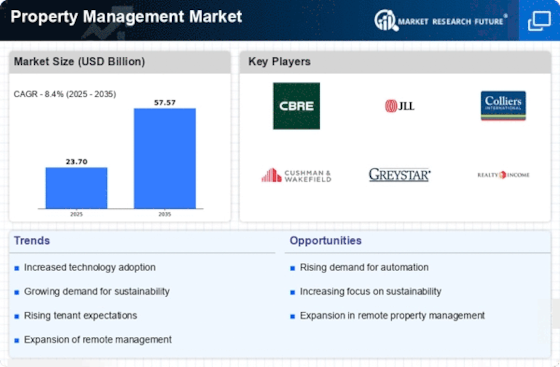

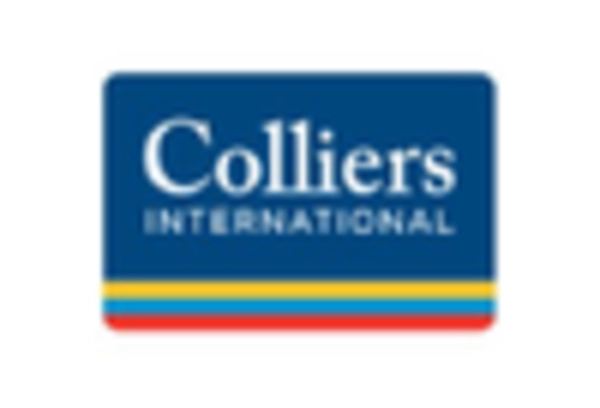

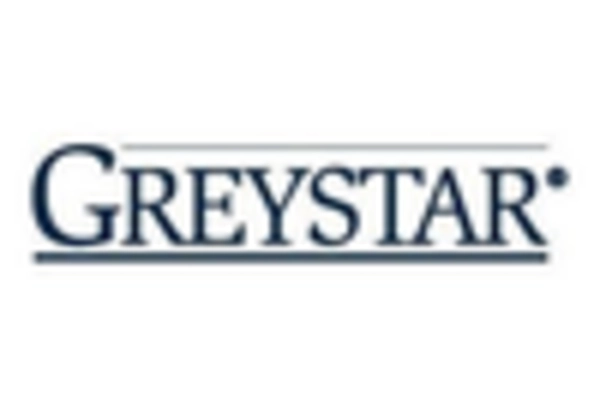
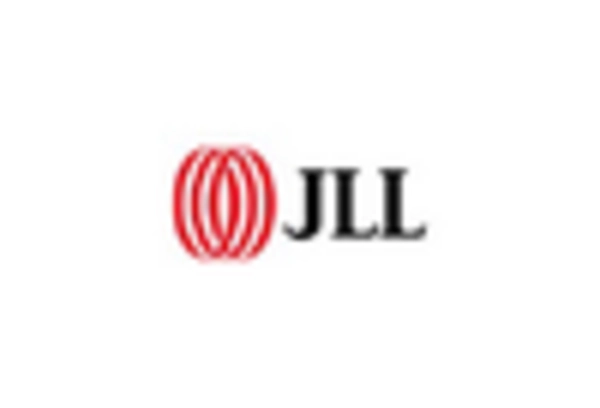
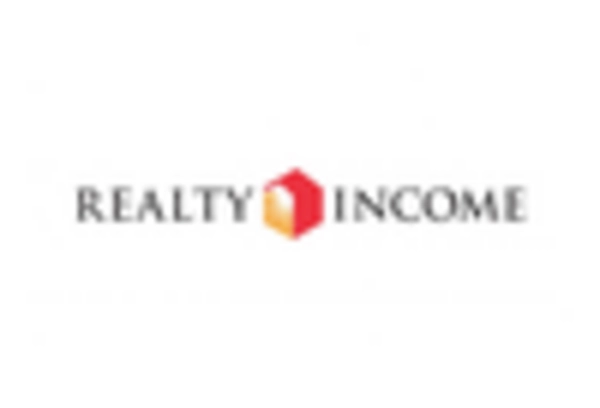









Leave a Comment